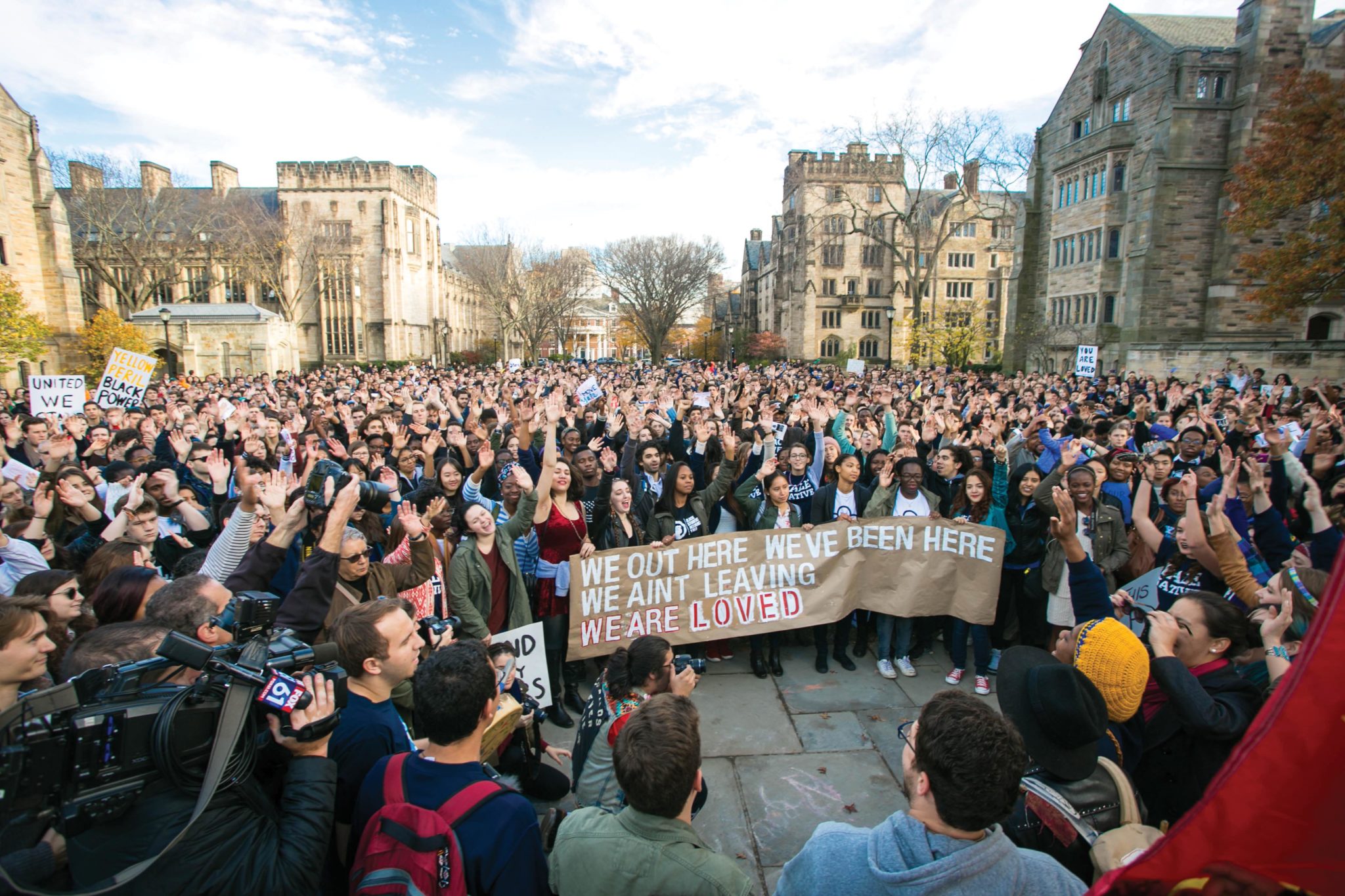
Three years after student members of the Next Yale coalition marched to University President Peter Salovey’s home calling on Yale to address racism on campus, another group is working to ensure that Yale remains committed to fostering an inclusive environment for its students of color.
Founded last fall, 5a is an undergraduate organization that aims to “give students and faculty an entry point into understanding how power and privilege function at Yale,” according to a joint statement from 5a’s logistics team. The student-led initiative advocates for mandatory workshops for first years on the issues of privilege, power and oppression. 5a’s name and mission stem from Next Yale’s demand 5a, which called for the “development of racial competence and respect training and accountability systems for all Yale affiliates.”
On Monday evening, 5a held an action meeting to inform students about the initiative’s mission and the progress it has made since it formed last year. The group has piloted its 90-minute workshop with several student groups and hopes to offer the training during Camp Yale in future years.
“We believe that in order to build an anti-oppressive culture at our university, it’s our responsibility to make sure that everybody coming into Yale has thought through the ways in which their different and intersecting histories will come to bear on their experience of Yale, and how their words and actions can affect others’ experiences at Yale,” the statement stated. “We hope this workshop’s implementation will work to change parts of campus culture through our daily interactions.”
Yale College Dean Marvin Chun said that “these important conversations” about race have played a big role in orientation programming for new students over the past three years. He added that those conversations usually include “guided discussions” that introduce first years to Yale’s “community’s values and to the behavior expected of everyone who belongs to it.”
According to Chun, 5a has received funding and feedback to help them develop their workshop from the Intercultural Affairs Council, a committee composed of administrators and cultural center directors.
“It’s too soon to know if mandatory workshops are the way to go — mandatory workshops have had mixed success in engaging students — but it’s good for them to collaborate with the residential colleges, with the faculty and with student organizations, especially the YCC,” Chun wrote in an email to the News.
Next Yale formed in fall 2015 in response to racially charged incidents on campus that struck a chord with many students of color. Following the 2015 protests, the University implemented a number of changes, which included abolishing the title “master” and replacing it with “head of college” as well as doubling cultural center funding. A year later, the University renamed Grace Hopper College — formerly named after famous slavery proponent John C. Calhoun, Class of 1804 — in honor of pioneering computer scientist and United States Navy Rear Admiral Grace Hopper GRD ’34. All of these changes were initially part of Next Yale’s demands.
In the statement, 5a members said that so far, they have hired and trained 10 undergraduate facilitators to run workshops, and have piloted the training with student groups such as Fence Club, the Women’s Rugby team and Cultural Connections.
Uzo Biosah ’20, a 5a workshop facilitator and head peer liaison for the Afro-American Cultural Center, emphasized the importance of educating Yale community members about power dynamics and privilege. She added that Yale “can and should be doing more” to address institutional racism on campus and encouraged the University to hire more faculty of color and give more funding and resources to cultural centers.
“There are parts of Yale’s recent history, such as those that sparked the demands of Next Yale, that we don’t want to be lost as classes graduate,” 5a said in its statement. “Many other universities … have schoolwide diversity trainings, and Yale is behind in this regard.”
The group said they hope to facilitate their workshop during Camp Yale, much like existing workshops by Communication and Consent Educators and Community Health Educators.
Alice Park | alice.park@yale.edu







